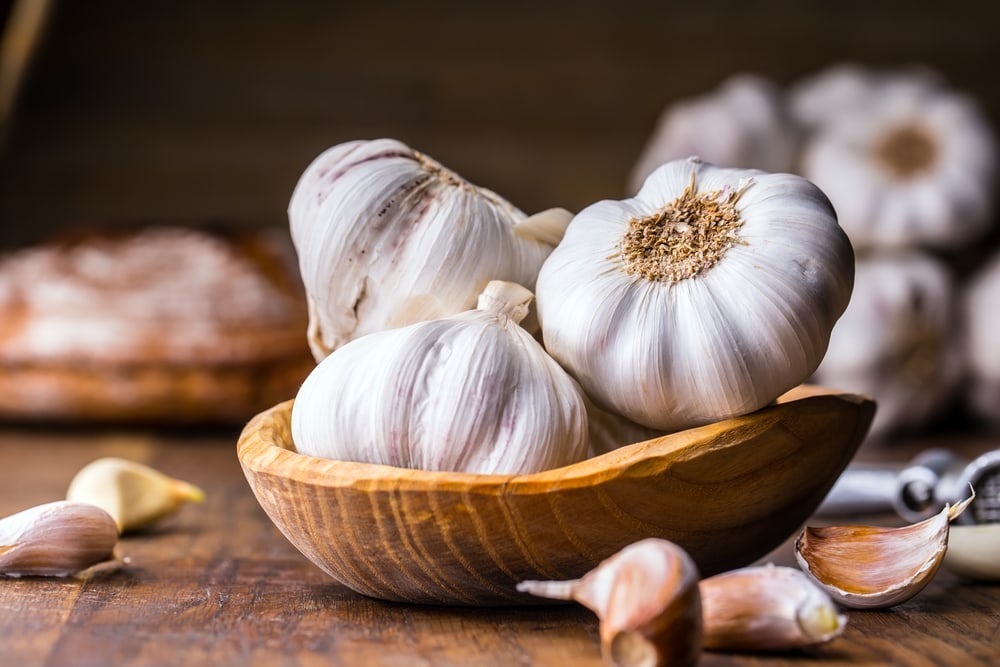Up to one billion people in the world, or one-sixth of the population, have some type of neurological disorder. Everyday foods can protect and nourish your brain. Everyone knows that some foods are better for you than others. For example, pick a salad over a pizza or choose some fresh veggies instead of French fries. But did you know that there are foods that are brain superheroes? Check out these brain foods that you should eat every single day. These foods increase memory retention, decrease oxidative stress, and more. They can even help prevent onset symptoms of brain disorders like Alzheimer’s, Parkinson’s, and others. Read on to learn about 30 healthy foods that can help your brain.

30. Garlic
If you’ve ever heard an old wives’ tale, you know that garlic is excellent for your immune system. Eating garlic regularly can help reduce inflammation and the severity of an illness, promote cell healing, and boost the number of natural killer cells in your body. All of this helps defend against infections.
But did you know that garlic is also quite good for your brain? Multiple studies have shown that garlic can help reduce the impact of Alzheimer’s disease by lowering your body’s oxidative stress. And what’s oxidative stress? It measures how many free radicals and other Reactive Oxygen Species (ROS) molecules are messing with our cells. When you reduce oxidative stress, the body can function better, protecting the brain from damage. Garlic can also reduce your cholesterol and blood pressure while improving your attention and memory! Whether you consume it in sauces or supplements, a regular helping of garlic is great for your body and mind.
